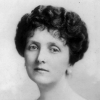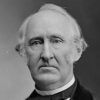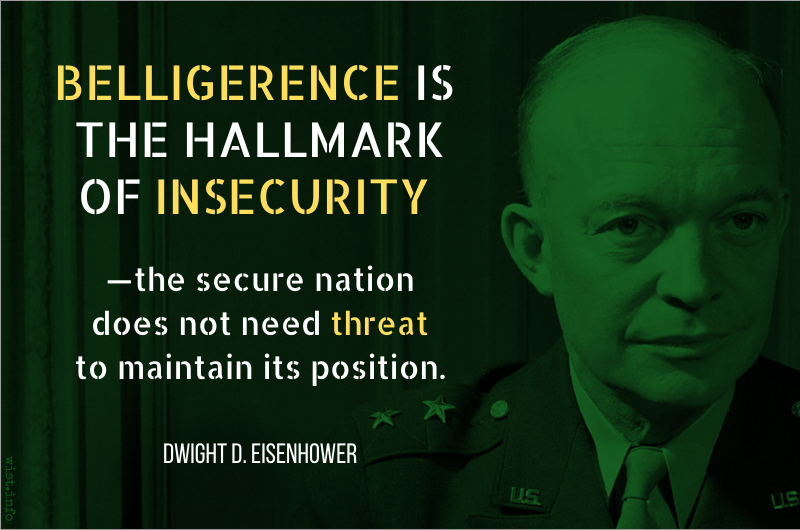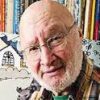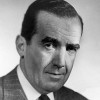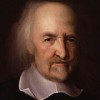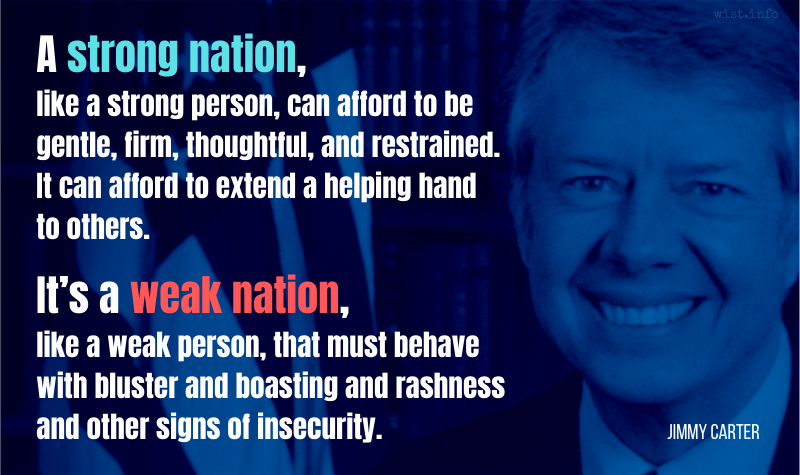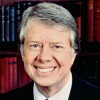To show lack of consideration for those who in any capacity serve us — whether in restaurants, hotels, or stores, or in public places anywhere — is always an evidence of ill-breeding as well as inexcusable selfishness. It is only those who are afraid that someone may encroach upon their exceedingly insecure dignity who show neither courtesy nor consideration except to those whom they think it would be to their advantage to please.
Emily Post (1872-1960) American author, columnist [née Price]
Etiquette: The Blue Book of Social Usage, ch. 8 “Entertaining at a Restaurant” (1922; 1955 10th ed.)
(Source)
See also Paul Eldridge.
Quotations about:
insecurity
Note not all quotations have been tagged, so Search may find additional quotes on this topic.
He who stifles free discussion, secretly doubts whether what he professes to believe is really true.
Wendell Phillips (1811-1884) American abolitionist, orator, social activist
Speech, Daniel O’Connell celebration, Boston (1870-08-06)
(Source)
The only basis for fearing the votes of men is to fear those men themselves. To deny the right to vote is to increase those fears.
Lyndon B. Johnson (1908-1973) American politician, educator, US President (1963-69)
Comments, U.S. Senate (1960-03-10)
(Source)
As Senate Majority Leader.
Bad reviews jar me down to the instep. I will never become philosophically resigned to a negative reaction to something I’ve written.
Rod Serling (1924-1975) American screenwriter, playwright, television producer, narrator
Patterns, Introduction (1957)
(Source)
No trust is safe.
[Nusquam tuta fides.]
Virgil (70-19 BC) Roman poet [b. Publius Vergilius Maro; also Vergil]
The Aeneid [Ænē̆is], Book 4, l. 373 (4.373) [Dido] (29-19 BC) [tr. Bartsch (2021)]
(Source)
Dido chiding Aeneas (and the gods) for Aeneas' desertion.
(Source (Latin)). Alternate translations:
True faith is lost.
[tr. Ogilby (1649)]
Faithless is earth, and faithless are the skies!
Justice is fled, and Truth is now no more!
[tr. Dryden (1697)]
Firm faith no where subsists.
[tr. Davidson/Buckley (1854)]
No faith on earth, in heaven no trust.
[tr. Conington (1866)]
Faith lives no more.
[tr. Cranch (1872)]
Nowhere is trust safe.
[tr. Mackail (1885)]
All faith is gone!
[tr. Morris (1900)]
Faithless is earth, and false is Heaven above.
[tr. Taylor (1907), st. 48, l. 426]
No trusting heart is safe
in all this world.
[tr. Williams (1910)]
Nowhere is faith secure.
[tr. Fairclough (1916)]
Faith has no haven anywhere in the world.
[tr. Humphries (1951)]
Nowhere is it safe to be trustful.
[tr. Day Lewis (1952)]
Nowhere is certain trust.
[tr. Mandelbaum (1971), l. 509]
Faith can never be secure.
[tr. Fitzgerald (1981), l. 514]
Is there nothing we can trust in this life?
[tr. West (1990)]
Nowhere is truth safe.
[tr. Kline (2002)]
Good faith is found nowhere.
[tr. Lombardo (2005)]
There’s no faith left on earth!
[tr. Fagles (2006)]
So many times I’ve made myself stupid with the fear of being outsmarted.
James Richardson (b. 1950) American poet
“Vectors: 56 Aphorisms and Ten-second Essays,” Michigan Quarterly Review, #17 (Spring 1999)
(Source)
You would think we would envy only what we love, for being loveable. But no, we envy those the world loves, because we care less for being loveable than being loved.
James Richardson (b. 1950) American poet
“Vectors: 56 Aphorisms and Ten-second Essays,” Michigan Quarterly Review, # 37 (Spring 1999)
(Source)
Belligerence is the hallmark of insecurity — the secure nation does not need threat to maintain its position.
Dwight David Eisenhower (1890-1969) American general, US President (1953-61)
Speech, American Newspaper Publishers Assoc, New York City (25 Apr 1946)
(Source)
The first part of the above was a common phrase of Eisenhower's.
At sixteen I was stupid, confused and indecisive. At twenty-five I was wise, self-confident, prepossessing, and assertive. At forty-five I am stupid, confused, insecure, and indecisive. Who would have supposed that maturity is only a short break in adolescence?
Some years ago, I was lucky enough invited to a gathering of great and good people: artists and scientists, writers and discoverers of things. And I felt that at any moment they would realise that I didn’t qualify to be there, among these people who had really done things.
On my second or third night there, I was standing at the back of the hall, while a musical entertainment happened, and I started talking to a very nice, polite, elderly gentleman about several things, including our shared first name. And then he pointed to the hall of people, and said words to the effect of, “I just look at all these people, and I think, what the heck am I doing here? They’ve made amazing things. I just went where I was sent.”
And I said, “Yes. But you were the first man on the moon. I think that counts for something.”
And I felt a bit better. Because if Neil Armstrong felt like an imposter, maybe everyone did. Maybe there weren’t any grown-ups, only people who had worked hard and also got lucky and were slightly out of their depth, all of us doing the best job we could, which is all we can really hope for.
Anxiety is the handmaiden of contemporary ambition.
I’m convinced if I keep going one day I will write something decent. On very bad days I will observe that I must have written good things in the past, which means that I’ve lost it. But normally I just assume that I don’t have it. The gulf between the thing I set out to make in my head and the sad, lumpy thing that emerges into reality is huge and distant and I just wish that I could get them closer.
Neil Gaiman (b. 1960) British author, screenwriter, fabulist
“This Much I Know,” The Guardian (5 Aug 2017)
(Source)
What makes the temptation of power so seemingly irresistible? Maybe it is that power offers an easy substitute for the hard task of love. It seems easier to be God than to love God, easier to control people than to love people, easier to own life than to love life.
To have money is a feare, not to have it a griefe.
George Herbert (1593-1633) Welsh priest, orator, poet.
Jacula Prudentum, or Outlandish Proverbs, Sentences, &c. (compiler), # 591 (1640 ed.)
(Source)
The reason we struggle with insecurity is because we compare our behind-the-scenes with everyone else’s highlight reel.
Steven Furtick (b. 1980) American pastor
Speech, Willow Creek Global Leadership Summit (church gathering) (11 Aug 2011)
Whatsoever therefore is consequent to a time of Warre, where every man is Enemy to every man; the same is consequent to the time, wherein men live without other security, than what their own strength, and their own invention shall furnish them withall. In such condition, there is no place for Industry; because the fruit thereof is uncertain; and consequently no Culture of the Earth; no Navigation, nor use of the commodities that may be imported by Sea; no commodious Building; no Instruments of moving, and removing such things as require much force; no Knowledge of the face of the Earth; no account of Time; no Arts; no Letters; no Society; and which is worst of all, continuall feare, and danger of violent death; And the life of man, solitary, poore, nasty, brutish, and short.
A strong nation, like a strong person, can afford to be gentle, firm, thoughtful, and restrained. It can afford to extend a helping hand to others. It’s a weak nation, like a weak person, that must behave with bluster and boasting and rashness and other signs of insecurity.
Jimmy Carter (b. 1924) American politician, US President (1977-1981), Nobel laureate [James Earl Carter, Jr.]
“Warm Hearts and Cool Heads,” speech, Liberal Party dinner, New York City (14 Oct 1976)
(Source)
The title of the speech was from a phrase coined by Adlai Stevenson.
IAGO: Poor and content is rich, and rich enough;
But riches fineless is as poor as winter
To him that ever fears he shall be poor.William Shakespeare (1564-1616) English dramatist and poet
Othello, Act 3, sc. 3, l. 202ff (3.3.202-204) (1603)
(Source)
The causes of the Great Depression are still far from certain. A lack of certainty, it may also be observed, is not evident in the contemporary writing on the subject. Much of it tells what went wrong and why with marked firmness. However, this paradoxically can itself be an indication of uncertainty. When people are least sure they are often most dogmatic.
John Kenneth Galbraith (1908-2006) Canadian-American economist, diplomat, author
The Great Crash, 1929, ch. 9 “Cause and Consequence,” sec. 3 (1954)
(Source)

